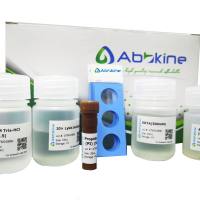Electrochemical DNA Biosensors: Protocols for Intercalator-Based Detection of Hybridization in Solution and at the Surface
互联网
互联网
相关产品推荐

彗星法DNA损伤分析试剂盒(3孔载玻片)
¥1498

0.4%台盼蓝染色液 (Trypan Blue Solution)
¥176

TACSTD2/TACSTD2蛋白Recombinant Human Tumor-associated calcium signal transducer 2 (TACSTD2)重组蛋白Cell surface glycoprotein Trop-2 (Membrane component chromosome 1 surface marker 1) (Pancreatic carcinoma marker protein GA733-1)蛋白
¥1368

SIRPA/SIRPA蛋白Recombinant Human Tyrosine-protein phosphatase non-receptor type substrate 1 (SIRPA)重组蛋白Brain Ig-like molecule with tyrosine-based activation motifs蛋白
¥1344

γ-氨基丁酸试剂盒,用于样本中GABA含量检测,微量法,GABA Content Detection Kit
¥358
相关问答

